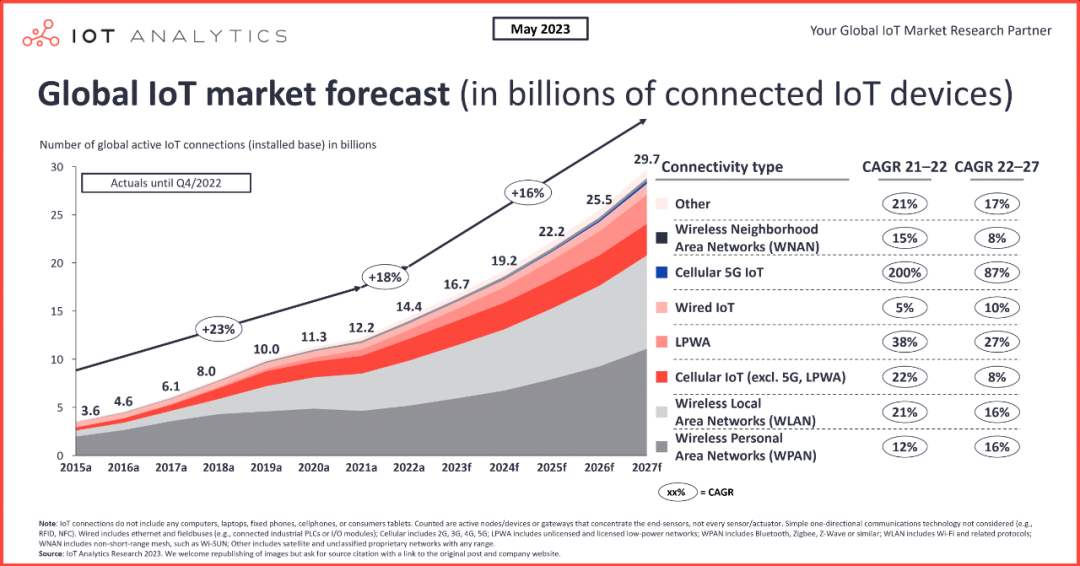Low-power narrowband IoT (LPWAN) technology has become a key tool for connecting billions of Internet of Things (IoT) devices, providing long-distance, low-power, and low-cost communication solutions for various application scenarios. However, the success of LPWAN technology is inseparable from the integration and development of other technologies to meet the growing needs of the Internet of Things. This article will briefly discuss the integration and development of LPWAN and other technologies, and the impact of this integration on the IoT industry.

1. Introduction to LPWAN
First, let’s take a brief look at LPWAN technology. It is a specific set of wireless communication protocols and technologies, including LoRaWAN, Sigfox, and NB-IoT, which together provide the capabilities of long-distance communication, low power consumption, and wide-area coverage. These characteristics make LPWAN ideal for many remote monitoring and control applications, such as smart cities, agriculture, environmental monitoring, and industrial automation.
2. Integrated development trends
Although LPWAN technology has achieved significant success, its development is still restricted by several challenges. To overcome these challenges, LPWAN technology is beginning to be integrated with other related technologies to expand its capabilities and applicability.
a. Edge computing
Edge computing pushes computing and data processing to the edge of IoT devices, reducing the need for data transmission and lowering latency. The fusion of LPWAN technology and edge computing enables IoT devices to become more intelligent and perform decisions and analysis on the device itself without transmitting all data to the cloud.
b. Artificial Intelligence (AI) and Machine Learning (ML)
The fusion of LPWAN technology with AI and ML enables IoT devices to better understand and respond to their environment. For example, smart sensors can use ML algorithms to analyze environmental data to enable predictive maintenance, anomaly detection, and resource optimization.
c. Blockchain technology
The integration of blockchain technology can provide secure and trusted data exchange between IoT devices. This is important to protect data privacy of IoT devices and ensure data integrity, especially in areas such as finance, healthcare, and supply chain.
d. 5G network
The deployment of 5G networks will bring higher bandwidth and lower latency to LPWAN technology. This will expand the scope of LPWAN, making it more suitable for applications that require higher data rates and faster response times, such as intelligent transportation systems and virtual reality.
3. Impact on the IoT industry
The integration of LPWAN technology with other technologies has had a multifaceted impact on the IoT industry.
First, it broadens the scope of IoT applications. The integration of other technologies enables IoT devices to cope with more complex and diverse application scenarios, thereby creating more business opportunities.
Secondly, it improves the intelligence of IoT systems. Through the combination of AI, ML and edge computing, IoT devices become more intelligent and can process and analyze data autonomously, providing more accurate feedback and decision-making.
Finally, integrating other technologies also improves the security and trustworthiness of IoT systems. This is critical for areas such as critical infrastructure, financial transactions and healthcare, which require highly reliable data transmission and security.
In conclusion:
The integrated development of low-power narrowband IoT technology has begun to change the landscape of the IoT industry. Integration with other technologies broadens the scope of applications and improves the intelligence and security of the system. As this trend continues to develop, we can expect more exciting IoT applications and innovations. This convergence paves the way for a future of connected world, moving us towards a smarter and more efficient IoT era.
 Trolink Joint With Tuya to Make Iot Benefit Every Family
Trolink Joint With Tuya to Make Iot Benefit Every Family
 5 Key Indicators for WiFi Module Selection You Have to Know !
5 Key Indicators for WiFi Module Selection You Have to Know !
 IOT module is the brain of smart products
IOT module is the brain of smart products
 What is the signal coverage range of the WiFi module chip?
What is the signal coverage range of the WiFi module chip?